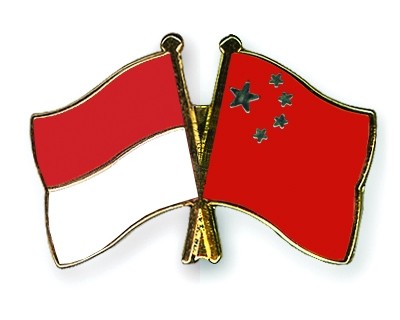 by Neil Chatterjee (Bloomberg) – Indonesia is seeking clarity on China’s intent behind its maritime claims in the South China Sea to avoid the risk of miscalculations in a zone rich in natural gas, Foreign Minister Marty Natalegawa said.
by Neil Chatterjee (Bloomberg) – Indonesia is seeking clarity on China’s intent behind its maritime claims in the South China Sea to avoid the risk of miscalculations in a zone rich in natural gas, Foreign Minister Marty Natalegawa said.
Indonesia wants an explanation of a map outlining China’s assertions in the South China Sea that appears on the nation’s passports and has asked the United Nations to help it obtain legal clarity, Natalegawa said in an interview in Jakarta today. The Philippines last month challenged China’s claims to contested areas of the South China Sea at a UN tribunal.
“What needs to be better communicated is the intent behind these steps so that they don’t become inadvertently a new source of problem and challenge,” Natalegawa said. The potential for misunderstanding meant there was a risk of minor incidents leading to a bigger crisis in the region, he said.
China’s push on its territorial claims in the South China Sea, an area rich in oil, gas and fish, and home to some of the world’s busiest shipping lanes, comes as it demonstrates greater military assertiveness in the region and beefs up defense spending. While China has agreed to work with Southeast Asian nations to craft a code of conduct for the waters, little progress has been made since talks were first announced last July.
Competing Claims
Indonesia is not a claimant in the South China Sea, and the country is not worried about getting caught up in the broader disputes, Natalegawa said. Vietnam, the Philippines and Malaysia are among countries vying for territory in the area alongside China.
“Any one of us that simply emphasizes one’s own security will find out quickly that such an approach can only be temporary,” said Natalegawa, a 51-year-old career diplomat, adding the maritime region should connect nations rather than be an area to carve up.
An Indonesian official said on March 12 that China’s so-called nine-dash line map included part of the Natuna Island waters in the Indonesian province of Riau. Vietnam and the Philippines reject China’s map of the waters as a basis for joint development of oil and gas, a solution pushed by China.
“China has claimed Natuna waters as their territorial waters,” said Commodore Fahru Zaini, assistant deputy to the chief security minister for defense strategic doctrine, according to Antara News. “This arbitrary claim is related to the dispute over Spratly and Paracel Islands between China and the Philippines. This dispute will have a large impact on the security of Natuna waters.”
Attack Helicopters
Indonesia will deploy four Boeing Apache attack helicopters to the Natuna Islands, IHS Jane’sreported on its website on March 27, citing General Budiman, the army’s chief of staff, as a pre-emptive measure against instability in the South China Sea. Indonesia is awaiting delivery of eight of the helicopters, due to arrive in 2017, it said, citing Budiman.
Indonesia’s state energy company PT Pertamina, along with partners that include units of Exxon Mobil Corp. and Total SA, wants to develop the East Natuna gas block with potential resources of 57 trillion cubic feet of gas, according to energy ministry data.
Natalegawa said any build-up of Indonesia’s defense capability was part of President Susilo Bambang Yudhoyono’s efforts to build a minimum force to protect the country’s territory, and not a response to regional arms buying.
Time Heals
Indonesia’s relationship with southern neighbor Australia is consolidating, and Natalegawa said he hoped the worst was behind the two countries after allegations that Canberra tapped Yudhoyono’s phone led to a halt in cooperation on asylum seekers. The spat has not affected economic ties, he said, with two-way trade at A$14.6 billion ($13.6 billion) in 2012.
While Natalegawa could not say if Australia was definitely no longer spying on Jakarta, he said the government believes Australia’s assurances on the use of its intelligence resources.
“This is about trust, this is about confidence,” Natalegawa said, describing the issue as an “abberation” in the ties. “Time heals.”
He said the two nations are now at the second step of a six-part process Yudhoyono called for before resuming joint military exercises. Speaking to reporters on Feb. 17, Natalegawa had called Australia’s response to new spying allegations ‘‘mind boggling’’.
‘Mutual Interest’
Australia apologized to Indonesia in January after border protection vessels mistakenly entered its waters. Abbott pledged before his election last September to stop asylum seekers reaching Australia, many ferried from Indonesian shores by people smugglers.
Relations had previously improved during the two terms of Yudhoyono, who can’t stand again in a presidential election to be held in July.
“There is a great deal of mutual interest,” Natalegawa said. “This is just giving all of us a bit of a headache.”

 Join The Club
Join The Club











